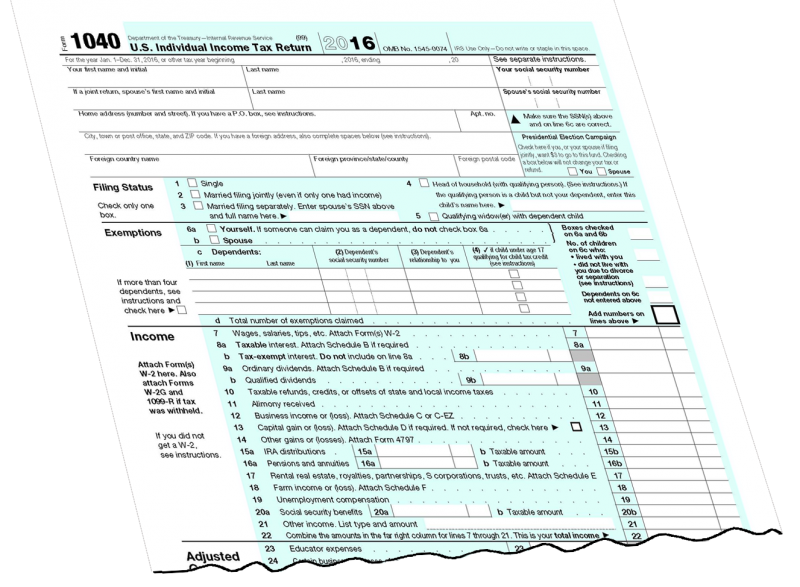As you consider in the previous article the three basic principles of tax reform, how do you see the proposed tax reforms affecting your own business and family? There are those who have concerns about our nation’s growing deficit and the wealthy “gaming the system.”
Both Republicans and Democrats question whether these kinds of tax cuts will actually help or hurt the deficit. According to the government’s Joint Committee on Taxation (Fox News, Trump tax plan reportedly would cut small business rate to 15 percent (April 26, 2017), “. . . a big cut in corporate taxes — even if it is temporary — would add to long-term budget deficits. This is a problem for Republicans because it means they would need Democratic support in the Senate to pass a tax overhaul that significantly cuts corporate taxes.”
With the Federal Reserve estimating the economy will grow at about 2.1 percent this year and about 1.8 percent long-term, some Republicans and most Democrats think 15% may be just too low and are not convinced revenues will be offset by other reforms proposed. Also, most Democrats caution the White House to insure corporation lawyers don’t find ways to avoid some of the reforms to get companies moving back to our nation’s shores.
According Jeanne Sahadi, How Trump’s tax plan would help the wealthy (and Trump), (CNN Money, April 27, 2017), “Treasury Secretary Steven Mnuchin said Wednesday ‘we’ll make sure there are rules in place’ to prevent the wealthy from gaming the system.” Then add other concerns by most all Democrats about the details yet to show up in some of the reforms. According to Albert R. Hunt, The Trump Tax Plan’s Devilish Details (May 2, 2017), “The Trump tax plan, unveiled in one sketchy page last week, is like a bottle of bad wine: It’s not aging well . . . As more phony claims and higher costs emerge, the already tough task of reforming the tax system becomes even more difficult. President Donald Trump’s proposal favors more affluent taxpayers and would add considerably to the federal deficit.”
As tax reform conversation continues, I found an interesting source for understanding the three basic principles of tax reform (Permanence, Moving to a territorial system, and Appropriate transition rules) from the U.S. Chamber of Commerce organization. With these principle explained below, how do see them helping your business and family? What concerns do you have about these principles and upcoming tax reform, covered in previous articles?
- Tax reform legislation should lower the corporate tax rate to a level that will enable U.S. businesses to compete successfully in the global economy, attract foreign investment to the United States, increase capital for investment, and drive job creation in the United States. Congress should consider the impact of a corporate rate reduction on pass through entities.
- In addition to reducing tax rates, tax reform should eliminate the bias in the current U.S. tax system against capital investment. Capital investment should be expensed or recovered using a capital cost recovery system that provides the present value equivalent to expensing with due regard to the impact the system may have on cash flow.
- In the international arena, the current worldwide tax system should be replaced with a territorial system for the taxation of foreign source income to enable U.S. businesses to compete successfully in the global economy, as well as domestically against foreign firms, and to promote economic growth domestically.
- Changes should be permanent to ensure certainty for businesses striving to expand, create jobs, and remain competitive in the United States and abroad.
- Fundamental reform should take place in the near-term, and Congress should not, in the interim, adversely change the current tax policy.
- Congress preferably should pass comprehensive tax reform legislation; conversely, Congress should avoid undertaking tax reform on a piecemeal basis.
- In considering tax reform legislation, Congress should give equal attention to government spending to strike a reasonable balance with a tax code that fosters economic growth, job creation, and investment.
- Congress should enact simple, predictable and easy to understand tax rules to improve compliance and reduce the cost of tax administration.
- Tax reform legislation should ensure industry-specific neutrality and avoid special tax benefits or penalties targeted to one industry versus another. Tax reform should allow the marketplace, not the tax system, to allocate capital and resources.
- Comprehensive tax reform should include realistic transition rules to provide adequate time for implementation and help minimize economic hardships businesses may encounter in transitioning to the new tax system.

